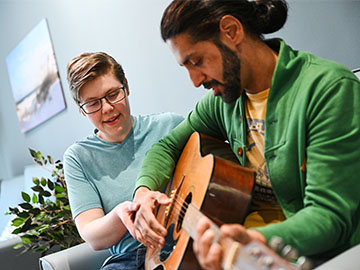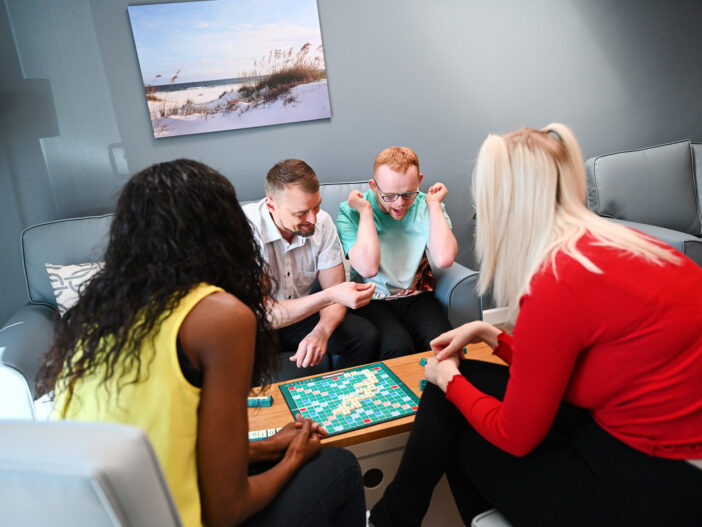Visual communication aids for positive autism outcomes
Our person-centred approach means we design our support for autistic people around their needs, interests, and personal preferences. We are committed to providing the highest quality autism support that empowers people to live the lives they choose. Whether they want to go to college, find employment opportunities or develop their daily living skills, we encourage the people we support to pursue their passions and achieve their goals!
Aiding communication
With a condition such as autism, the brain works a little differently. Each autistic person has a unique set of conditions, traits, and support needs, but challenges with communication and processing information appear to be a common characteristic.
Generally, using written or visual prompts such as sticky notes, to-do lists, and phone reminders when we are overwhelmed with information, can help us organise our thoughts. A similar thing happens in the mind of an autistic person, so having pictures and colourful information available when processing information, makes it more accessible.
Many autistic people find it particularly difficult to process verbal information, which often results in feelings of anxiety and frustration, and challenging behaviour. To combat this, autistic people have a high-level of ‘visual processing’. This means they respond positively to pictures, objects, and symbols, and can process them as a way of communication. That’s why visual aids are beneficial when supporting verbal communication – they help add more context to what is being communicated and what the outcome should be.
At Voyage Care, we have influenced the use of visual aids to communicate effectively with the people we support. Support Workers often use visual cues to break down information to reassure the people we support, resulting in a positive impact on their behaviour.
Our teams use a combination of picture cards, symbols, and physical objects to effectively communicate subjects that may otherwise greatly impact the people we support – such as changes in their routine, teaching social skills and aiding daily living tasks.
Our autism approach
Our goal is to provide the best possible outcomes in the lives of autistic people. We co-create care plans with the people we support, helping us to understand their individual support needs.
We also have a dedicated team of autism experts that make up the Voyage Care autism professionals’ group. The group works hard to continuously improve the specialist support we deliver and help identify new practices and therapies. They inspire and train our teams to ensure these support practices are effectively implemented and benefit the people we support.
This panel of experts includes two National Autistic Society (NAS) accredited assessors who visit other support providers and assess their standards. Doing so, creates an opportunity for wider-learning and has enabled us to develop our support practices within our autism services.
Supporting individual needs
We understand that everybody is unique, and autism is a different experience for each person. Our person-centred approach means our teams work closely with the people we support to determine their specific needs by conducting sensory, environmental and communication assessments. Our teams also develop meaningful relationships with the people we support, their families, carers, and professionals, as part of a multi-disciplinary approach that puts the people we support at the heart of all decision making.
Find out more
To find out more about our specialist autism support and how we could help you, a loved one or a client, please visit our Autism page or fill out our quick enquiry form.

 Information
Information 

